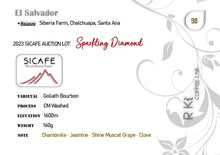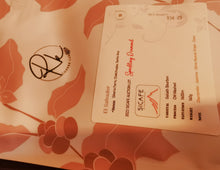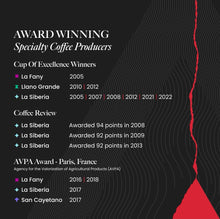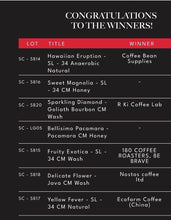SICAFE: A FAMILY-RUN COFFEE COMPANY with a rich history
Dating back to 1870, Sicafe has been constantly growing and innovating. We come from a long line of coffee growers and our agricultural practices have been inherited from father to son for over six generations.
Located high in the Apaneca-Ilamatepec mountain range of El Salvador, we produce, mill, export, and roast high-quality coffee. Our knowledge and expertise have been passed down through generations, and we are grateful for the support of local communities and collaborators who have contributed to our success.
Our Legacy
Working with traditional varieties and experimenting with some new ones, we have inherited all of our agricultural practices from father to son across generations.
THE STRENGTH OF OUR COMPANY: Our Amazing Team
Our team has a deep understanding of the coffee-making process, from seed to cup. We meticulously follow our proven processes to ensure the highest quality at every stage, starting at the farm and continuing through exportation.
Hard work, patience, and dedication are essential to producing the best coffee, and our well-trained and highly skilled staff embody these values. We owe our success to our outstanding team, who we are grateful for every day.
Cup Of Excellence Winners
La Fany 2005
Llano Grande 2010 | 2012
La Siberia 2005 | 2007 | 2008 | 2012 | 2021 | 2022

Coffee Review
La Siberia Awarded 94 points in 2008
La Siberia Awarded 92 points in 2009
La Siberia Awarded 92 points in 2013

AVPA Award - Paris, France
Agence Pour la Valorisation Des Produits Agricoles
La Fany 2016 | 2018
La Siberia 2017
San Cayetano 2017
Entre Cerros Red Bourbon 2019
Entre Cerros Pacamara 2019


FARM DETAILS
| Farm Name: | Siberia |
|---|---|
| Country: | EL SALVADOR |
| Farm Size: | 28.2 ha |
| Founding Year: | 1870 |
| Varieties Grown: | Red Bourbon, Yellow Caturra, Pacamara, Pacas, SL-34, SL-28, Java, Goliath Bourbon, Yellow Pacamara, Batian, and Geisha |
| Processing Methods: | Washed, Semi-Washed, Honey, Natural, and Experiments |
| CWS Owner: | Rafael Silva |
| Location: | Chalchuapa, Santa Ana |
| Soil Type: | Clay Loam Soil |
| Farm Elevation: | 1450 – 1675 masl |
| Average Rainfall: | 2500mm (annual) |
PRODUCER STORY:
We come from a long line of coffee growers and our agricultural practices have been inherited from father to son for over six generations.
Back in 1870, Fabio Morán and Epifanio Silva decided to conquer the hostile territory of the Santa Ana region of El Salvador, sowing coffee trees in one of the highest summits of the Apaneca-Ilamatepec mountain range. They named the farm La Siberia, for its chaotic weather conditions, along with its difficult accessibility.
Because of its unique micro-climate, coffee matures later in Siberia than in the rest of our farms. Fabio Moran and Epifanio Silva used to bring the coffee down using mules. They would go up and down the mountain carrying every single bag picked with the local workers.
One century later, Rafael Silva inherited the property. It is located between 1,450 and 1650 meters above sea levels. He has worked it up to be one of the best coffee producing farms in the world.
The farm used to be 100% Red Bourbon, but Rafael Sr., who is always looking to improve on quality and productivity, decided to experiment with Yellow Caturra and Pacamara as well. The results have been amazing.
La Siberia has five Cup of Excellence Awards: 2005, 2007, 2008, 2012, 2021, and 2022. In 2008, Siberia was awarded 94 pts by Coffee Review.
All this, the experience of traveling to this farm, and the quality of the coffees from Siberia are what have made Siberia a world-wide renowned single estate. Now, certain areas have been evaluated to be planted with new varieties that are soon to start producing. Some of them are Java, SL-34, Batian Yellow Pacamara, and Geisha. First harvest for the SL-34 was 2020-2021, Java and Batian start producing for the 2022-2023 harvest, for the Yellow Pacamara and Geisha we will have to wait 1 or 2 more harvests to start testing their cup qualities.
One day, when visiting the farm, Rafael Jr. was told by the farm foreman that they needed to check out some coffee trees that have sprouted in different areas of the farm, but they have all the same physical properties. There were 10 trees in total, but the foreman was right, they had the same physical properties, so Rafael went on to pick the coffee cherries and taste them. They were very different from the Bourbon and Pacamara cup profiles. Physically, the trees have a very big foliage, the cherries are very big (bigger than Pacamara cherries), they have a pointy end at the tip of the cherry, and grow very tall. He then went back to the farm and took leaves as instructed by Syrah in France to have them tested for their DNA trace. The results came back saying it was Bourbon or a derivative of a bourbon. The following year, he selected some of the cherries for seeds and the rest to try again in the cup. This variety has been named by us as Goliath Bourbon, due to the lack of a more specific laboratory result.








